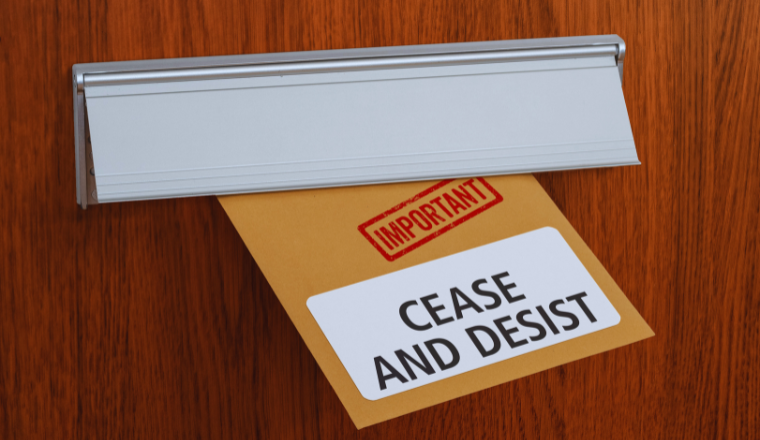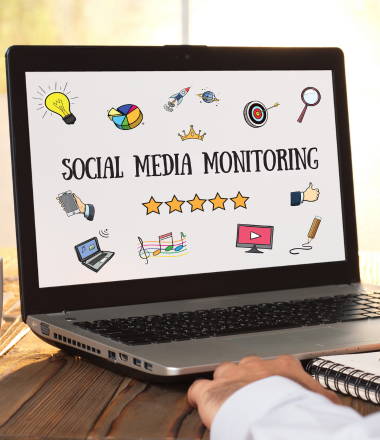Copyright Infringement on Social Media: How to Prevent

Table of Contents
Preventing Copyright Infringement on Social Media Platforms
With the ubiquity of social media platforms, copyright infringement has become a rampant issue for content creators and brand owners. From unauthorized sharing of copyrighted material to reproducing logos, or slogans without permission, social media provides ample opportunities for intellectual property violations. To protect themselves, businesses and influencers must understand the laws around copyright and how to enforce their rights on these platforms.
This article examines the scope of copyright law as it pertains to social media content, outlines steps that brands and content creators can take to protect their intellectual property online and provides guidance for reporting and responding to infringements in order to minimize legal risks and brand damage. By proactively safeguarding copyrights, companies and individuals can fully leverage social media while avoiding negative repercussions of unauthorized use.
Understanding Copyright Law and Social Media
Copyright law protects creative works like books, songs, photos and videos. On social media platforms, it is important for users to understand copyright rules and what they can and cannot share to avoid infringing on copyright.
Fair Use Exceptions
Under copyright law, there are exceptions known as "fair use" that permit limited use of copyrighted works without permission from the rights holder. Quoting or excerpting parts of a work for criticism, commentary, news reporting, teaching, and research may qualify as fair use.
Obtaining (Request) Permission
If use of a work does not fall under fair use, permission must be obtained from the copyright owner before sharing or posting the work on social media. Copyright holder(s) can grant permission for use of copyrighted material through a license agreement. Some works may be in the public domain, meaning the copyright has expired and they can be used freely. However, it is best to verify the copyright status of a work before assuming it is in the public domain.
Monitoring and Enforcement
Brands and content creators should regularly monitor social media for instances of violations of copyright rules involving their intellectual property. If unauthorized use of a original work is discovered, the rights holder can issue a takedown notice to the platform requesting that the infringing content be removed. For severe or repeat offenses, legal action like a cease-and-desist letter or lawsuit may need to be pursued to enforce one's copyright.
By understanding copyright law and best practices on social media, users and brands can take appropriate steps to both protect their own intellectual property and avoid infringing on the rights of others. With cooperation and vigilance, social media platforms do not have to be a breeding ground for copyright issues - namely, theft, misuse.
Common Forms of Copyright infringement on Social Media
Let us now discuss the different types of infringements that social media users may commit, knowingly or unknowingly.
Unauthorized Reproduction
The unauthorized reproduction of copyrighted content, including photographs, videos, music, software, and literary works constitutes copyright infringement. On social media platforms, users frequently repost, download, and share copyrighted content they do not own or have permission to use.
Plagiarism
Plagiarism refers to the use of another's creative work or ideas without proper attribution or credit. On social media, plagiarism commonly takes the form of users copying and pasting blog posts, social media updates, or other content and passing it off as their own. Users may also plagiarize by paraphrasing another's work without citing the source.
False Attribution
False attribution occurs when a copyrighted work is attributed to the wrong owner or creator. For example, a social media user post a famous quote or creative work and attribute it to the wrong historical figure or original author. False attribution can damage the reputation and credibility of the actual creator.
Trademark Infringement
A company's trademark, including names, logos, and brand elements, are also subject to infringement on social media. Users may incorporate trademarks of a company into their own posts, profiles, or pages in a way that is likely to cause confusion as to the source or sponsorship. Trademark holders must actively monitor for and report such unauthorized use to avoid weakening their brand identity.
Overall, copyright holders and brand owners should regularly monitor for social media copyright infringement and report violations to the appropriate parties. With active enforcement of their intellectual property rights, companies can help curb unlawful behavior online and keep the integrity of their creative works and brands protected.
Strategies to Prevent and Avoid Copyright Infringement on Social Media
To prevent social media copyright infringement, brand owners and content creators should implement proactive strategies.
- Monitor Social Media Channels: Constantly monitoring social media channels for unauthorized use of copyrighted material is key. Using social media monitoring tools to track mentions of the brand, product names, slogans, or content can help detect infringement early. Once detected, the content can be reported to the platform to request removal.
- Issuing Cease and Desist Notices: When copyright infringement is detected, the brand owner should immediately contact the infringing party immediately, issuing a cease-and-desist notice. This communicates that the use of the copyrighted material is unauthorized and needs to be stopped. Failure to comply can result in further legal action and the violator(s) may face serious consequences.
- Registering Copyrights: Registering copyrights for all original content, including images, videos, blog posts, and social media captions, strengthens the brand owner's ability to enforce intellectual property rights. Registration creates a public record of the copyright claim and enables statutory damages if infringement leads to legal action under federal law.
- Educating Employees and Influencers: Educating all employees and social media influencers working with the brand about copyright laws and what constitutes infringement is important. They need to understand how to properly obtain licenses or permissions before sharing or reposting any copyrighted content to avoid violations, even inadvertently.
- Staying Vigilant: While strategies can be put in place, ultimately prevent copyright infringement on social media requires ongoing vigilance Social platforms are continually evolving, and new forms of infringement emerge. Regular reviews of policies and monitoring procedures, as well as staying up to date with changes in the laws concerning copyright, will help ensure brand owners have the knowledge and tools to protect their intellectual property.


Best Practices for Copyright Compliance on Social Media
Let us discuss the best practises for compliance for copyright protection of original work(s), materials, user content, and creation(s).
- Ensure Content is Original: When posting content on social media, it is crucial to ensure that all creative works are original and do not infringe on any existing copyrights. Businesses and social media companies should implement policies and specific guidelines requiring employees to only post photos, videos, blog posts, and other content that they have created themselves or have written permission to share from the rights holder.
- Obtain Permission to use Copyrighted Materials: If a business wants to share copyrighted content created by another party, they must respect the ownership of the content and abide by the intellectual property laws and copyright regulations. Explicit permission and exclusive rights must be obtained from the rights holder or creator, prior to the content posted and distribution on social media. Permission should be acquired in writing, often in the form of a licensing agreement that specifies how the content may be used in certain situations.
- Attribute and Link to Sources: When sharing content on social media that was created by a third party, proper attribution should always be given. This includes identifying the creator by name, username, or page name and linking directly to the original post or content. Proper acknowledgement and linking helps to avoid the appearance of copyright infringement while also giving credit to the original creator.
- Reporting Infringing Content: Businesses have a responsibility to report infringing content when they become aware of it. Whether the infringing work is appearing on their own social media profiles or on the profile of others, it should be flagged and reported immediately. Failing to report known copyright violations can be seen condoning the behavior and may subject businesses to legal liability.
- Educate Employees: Employees should receive regular training on copyright basics and laws and, company policies related to social media use. Education and awareness are key to ensuring compliance across an organization. Employees should understand types of content that can and cannot be shared, the importance of giving credit to the original creator or site, and procedures for reporting infringement. With ongoing education, employees can become effective partners in a business's copyright compliance efforts.
In summary, abiding by best practices such as using original and authorized content, properly attributing third-party work, reporting infringing content, and educating employees is key to achieving copyright compliance on social media. With vigilance and a commitment to respecting intellectual property rights, businesses can leverage social media to their benefit without worry of legal repercussions.
Legal Implications and Penalties for Copyright Infringement on Social Media
Civil Lawsuits and Damages
Copyright holders whose works have been infringed upon on social media have the right to file a civil lawsuit against the infringing party. If the copyright holder is successful in court, the infringing party may be required to pay damages in the form of lost profits, the amount the copyright holder would have earned if the work had not been infringed, or statutory damages of up to $30,000 per work infringed.
Criminal Penalties
In some cases, the unauthorized use of copyrighted works on social media can lead to criminal charges and penalties. Individuals or companies found guilty of willful copyright infringement in order to gain a commercial advantage or private financial gain face up to five years in prison and fines of up to $250,000 per offense. The court may also order the seizure and destruction of infringing materials.
Takedown Notices and Account Termination
Copyright holders can issue takedown notices to social media platforms requesting the removal of infringing content. If a user repeatedly posts infringing content, the social media platform may terminate their account. Content creators and influencers should exercise caution to avoid account suspension or termination, as this could significantly damage their brand and social media presence.
Loss of Safe Harbor Protections
Social media platforms that fail to address infringement claims and comply with takedown notices risk losing safe harbor protections provided by laws like the Digital Millennium Copyright Act (DMCA). Without these protections, platforms can face legal liability for copyrighted content posted by users. To maintain safe harbor status, platforms must follow proper notice-and-takedown procedures and adopt repeat infringer policies.
In summary, copyright infringement on social media can result in civil lawsuits, criminal charges, account suspension, loss of safe harbor protections for platforms, and other legal consequences. Content creators and influencers should understand their obligations under copyright law to avoid these penalties, while copyright holders have avenues to protect their intellectual property rights. By working together, all parties can promote a social media environment that respects copyright.
Conclusion
Social media has become a hotbed for copyright infringement by users sharing content without proper attribution or permission. While social media companies and platforms must do more to curb this behavior through improved policies and enforcement, the onus remains on content creators and rights holders to be vigilant in monitoring their work and sending takedown notices when needed. By registering copyrights, watermarking media, and leveraging available tools to report infringement, brands and individuals can better protect their intellectual property in the digital realm. With a multi-pronged approach of education, deterrence and continued pressure on social networks, the rampant copyright abuse on these platforms can be mitigated.
Protect your intellectual property today with Abounaja Intellectual Property. Email us at [email protected] to register your copyrights and safeguard your creative works.






